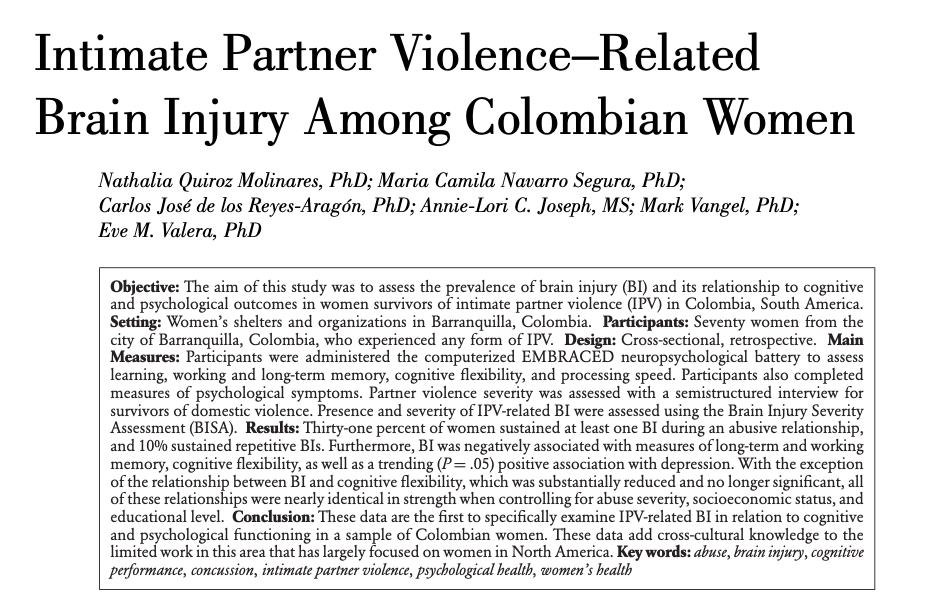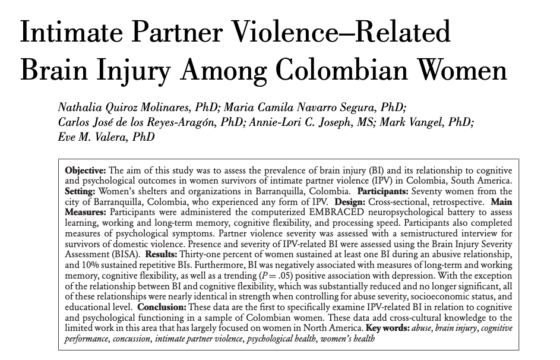Click here to view our new publication in Journal of Head Trauma Rehabilitation!
First author Nathalia Quiroz Molinares, PhD visited the Valera Lab in the Fall of 2019 as a Fulbright scholar to work on her dissertation under the mentorship of Dr. Valera. In addition, she collaborated with Annie-Lori Joseph, a doctoral student and lab research coordinator, and Annie was also included in helping publish the study.
Intimate Partner Violence–Related Brain Injury Among Colombian Women
Objective:
The aim of this study was to assess the prevalence of brain injury (BI) and its relationship to cognitive and psychological outcomes in women survivors of intimate partner violence (IPV) in Colombia, South America.
Setting:
Women’s shelters and organizations in Barranquilla, Colombia.
Participants:
Seventy women from the city of Barranquilla, Colombia, who experienced any form of IPV.
Design:
Cross-sectional, retrospective.
Main Measures:
Participants were administered the computerized EMBRACED neuropsychological battery to assess learning, working and long-term memory, cognitive flexibility, and processing speed. Participants also completed measures of psychological symptoms. Partner violence severity was assessed with a semistructured interview for survivors of domestic violence. Presence and severity of IPV-related BI were assessed using the Brain Injury Severity Assessment (BISA).
Results:
Thirty-one percent of women sustained at least one BI during an abusive relationship, and 10% sustained repetitive BIs. Furthermore, BI was negatively associated with measures of long-term and working memory, cognitive flexibility, as well as a trending (P = .05) positive association with depression. With the exception of the relationship between BI and cognitive flexibility, which was substantially reduced and no longer significant, all of these relationships were nearly identical in strength when controlling for abuse severity, socioeconomic status, and educational level.
Conclusion:
These data are the first to specifically examine IPV-related BI in relation to cognitive and psychological functioning in a sample of Colombian women. These data add cross-cultural knowledge to the limited work in this area that has largely focused on women in North America.








